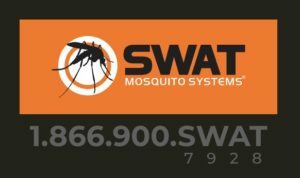Perhaps the only downside of living near the beautiful beaches, swamps, and lakes of Florida are the insects that also call these ecosystems home. Trying to get rid of noseeums or mosquitos can sometimes feel like an uphill battle, but SWAT Mosquito Systems®️ is now here to help! While historically the pesky Florida mosquito population has kept us in business, more and more people are reaching out wondering if our natural misting system can help them get rid of noseeums as well. The answer, of course, is yes! Misting for no-see-ums is the same process as misting for mosquitos, and with your new SWAT System, you will soon be able to enjoy a bug-free yard. For those mosquito prevention experts who know less about their more annoying cousins, keep reading to see why no-see-ums control is just as important.
Why Bother Misting for no-see-ums?
Nobody likes getting bit by insects, and while mosquitos are often cited as the most annoying, no-see-ums may be even worse. Although many times smaller than mosquitos, no-see-ums (also known as sand flies) have a stinging bite that will often cause large red welts on the skin. Similar to mosquitos, these welts will itch and irritate. Obviously, that is worth avoiding, and a natural no-see-ums misting system is a foolproof way to get rid of these insects once and for all. It is also worth noting that many of the thousands of species of no-see-ums are small enough to fly through the screens in your windows or doors – ultimately allowing them to work their way inside. By installing a no-see-ums yard spray/misting system outdoors, you can nip this problem in the bud and create a comfortable and relaxing atmosphere both inside and outside your Florida home.
Where Should you be Misting for no-see-ums?
Where are no-see-ums found? Despite being a very different insect, no-see-ums share a lot of similarities with mosquitos. Both insects lay their eggs in standing water, so properties close to either fresh or salt water could be breeding grounds for unwanted visitors. No-see-ums in particular will rarely venture further than 400 feet from where they hatched. In other words, homes near water are the perfect place to invest in a natural no-see-ums misting system. No-see-ums can be found in climates across the world (including in the snowy mountains of the Himalaya!), and nearly every corner in the state of Florida provides the ideal habitat for these pesky insects to thrive. As someone who enjoys the beautiful nature of The Sunshine State, no-see-ums control should be a top priority for your big backyard.
Mosquitos often steal the negative publicity in Florida but, truth be told, no-see-ums may be even more obnoxious. Small, swarming, and with a more vicious bite, these little insects can single-handedly wreck an otherwise beautiful evening in your backyard. But all is not lost.
Set up an appointment with SWAT to inquire about our misting systems and to get rid of noseeums and mosquitos today!

